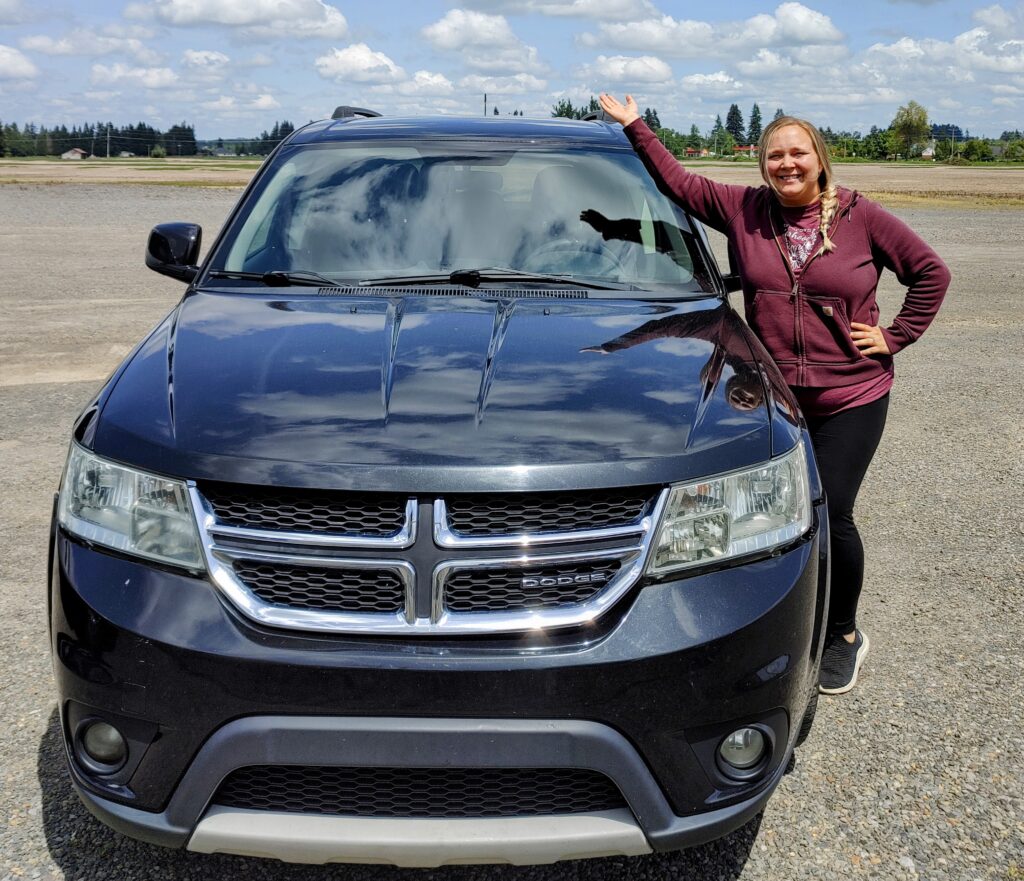
After years of weathering struggles and an inability to pay bills, Jenifer Crow, her husband,
and four children have become financially secure homeowners. Layered public services,
including the federal Family Self Sufficiency program and the Oregon IDA Initiative—both
of which focus on building savings habits, supported their transformation.
In the mid 2010’s, while living in the stability of public housing, Crow and her husband began
pursuing homeownership in earnest—finding employment, earning raises over a period of
years, and eventually enrolling in DevNW’s Homebuying Foundations course and IDA. When an appropriate home in Lyons became available a few months later, they purchased on a much quicker timeline than expected. The expedited timeline meant they didn’t use their IDA toward the home purchase.
Instead, Crow redirected her IDA goal to save up for something else the family needed: a good working car. Her older car was frequently breaking down, costing her a lot in maintenance, frustration, and the threat of missing shifts in her job as a school bus driver. She notes, “Living up in the [Santiam] canyon, so far away from everything, you can’t just walk to work if
you don’t have a vehicle.”
Crow credits the encouragement she received from DevNW staff with helping her to take up a new habit of saving. Their reminders, based in behavioral economics—to make regular deposits, even if they were small; to make saving automatic (by entering a monthly calendar alarm, for example); and even reminding her of the matching funds she would miss out on—set
her on a new path.
After two years of saving, in 2019, Crow purchased a car that would seat six, which the family still uses today.
Crow went on to continue saving and create an emergency fund for her family. She states, “We would never have had the emergency fund without learning how to save and how to be financially prepared.”
In Fall 2020, the Santiam wildfire meant they had to evacuate their home and lose work for two weeks. When family asked if they needed help financially, they were able to respond with confidence and pride that they had emergency savings to tap into. Crow explains, “It’s made us more financially stable–to be able to pay our bills and then have a month’s worth [of expenses] as a backup. It’s definitely a game changer.”
